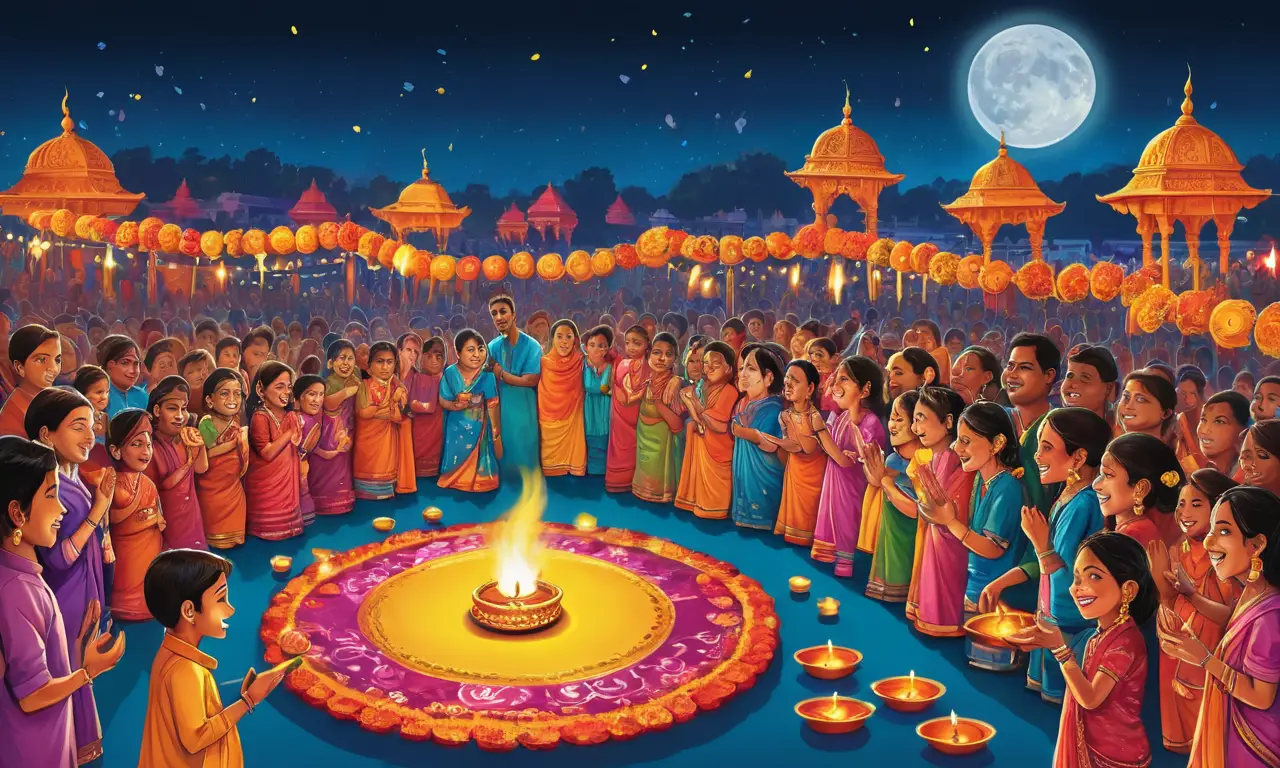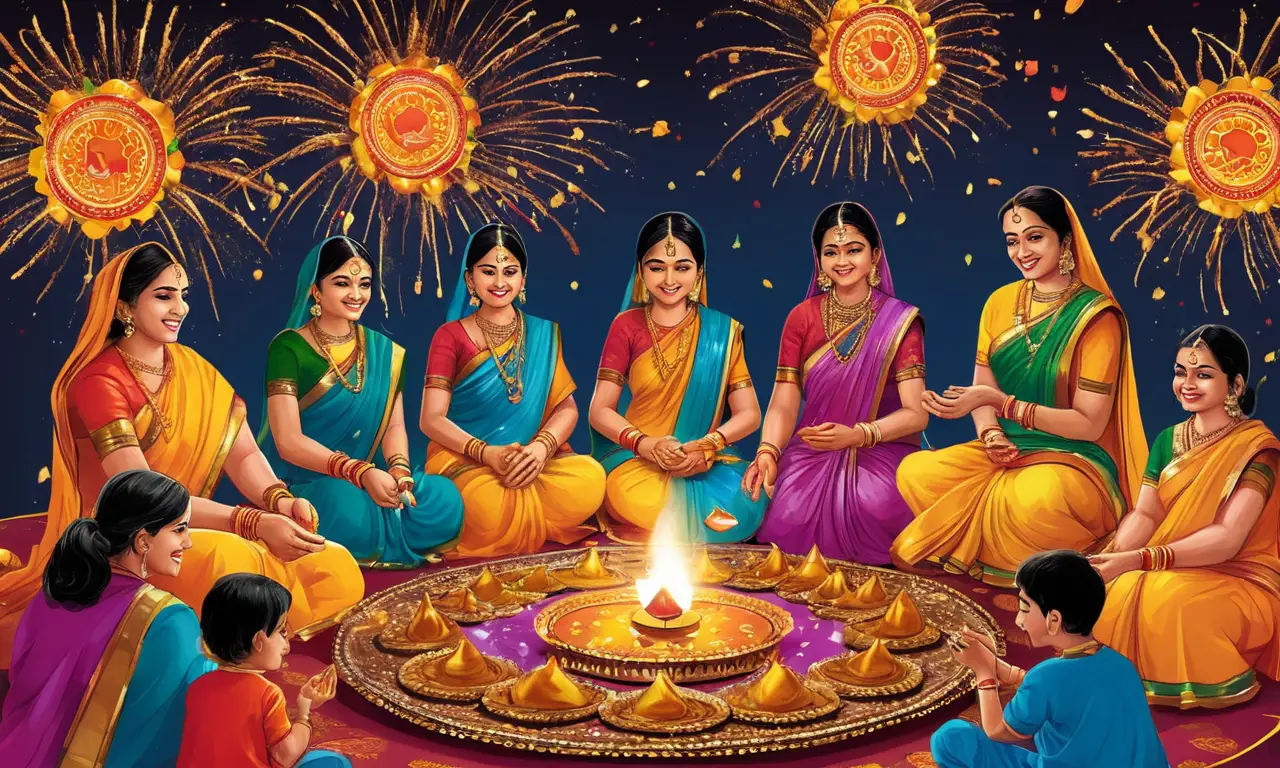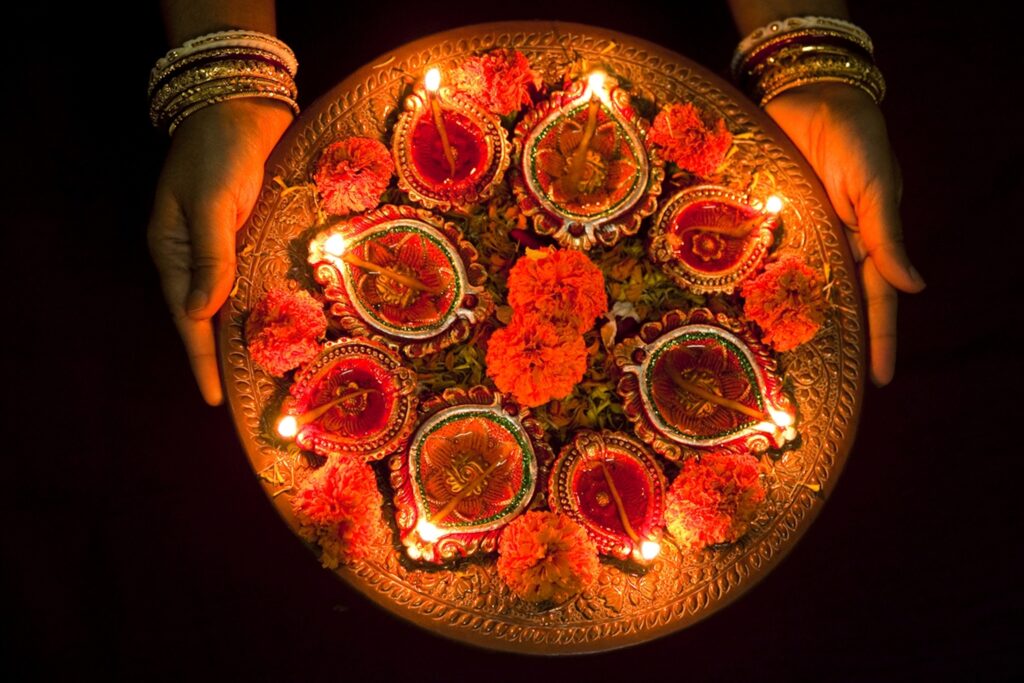Diwali, also known as Deepavali, is one of the most beloved festivals celebrated across the globe. It’s a time for joy, light, and togetherness, observed by Hindus, Sikhs, and Jains with great enthusiasm. This auspicious occasion symbolizes the victory of good over evil, knowledge over ignorance, and hope over despair.
This article will delve into the vibrant traditions, rich cultural significance, and delectable feasts that make Diwali a truly special celebration. We’ll explore the various ways people around the world mark this festival, from illuminating their homes with diyas to exchanging gifts and sharing sweets. Get ready to immerse yourself in the magic of Diwali!
Diwali Celebrations
Diwali celebrations are a visual spectacle, transforming streets and homes into shimmering landscapes of light. Homes are meticulously cleaned and decorated with colorful rangoli patterns, intricate clay lamps called diyas, and twinkling fairy lights. The air is filled with the aroma of incense and festive sweets as families gather to celebrate.
One of the most iconic aspects of Diwali is the lighting of diyas. These small earthen lamps symbolize the triumph of light over darkness and are placed in windows, doorways, and courtyards, creating a mesmerizing glow that illuminates the night. Fireworks add another layer of excitement to the festivities, painting the sky with vibrant colors and echoing through the streets.
Diwali celebrations often extend for several days, each day dedicated to a specific deity or aspect of the festival. Some communities observe Lakshmi Puja, the worship of Goddess Lakshmi, who is associated with wealth and prosperity. Others celebrate Hanuman Jayanti, the birth anniversary of Lord Hanuman, known for his strength and devotion.
Significance of Diwali

Beyond its festive grandeur, Diwali holds deep spiritual significance. It’s a time for reflection, renewal, and the triumph of good over evil. The festival commemorates the return of Lord Rama to Ayodhya after defeating the demon king Ravana, symbolizing the victory of righteousness over wickedness.
Diwali also represents the victory of knowledge over ignorance and the illumination of the soul. The lighting of diyas symbolizes the dispelling of darkness within ourselves and the world around us. It’s a reminder that even in the darkest of times, there is always hope and light to guide us.
Traditions and Customs
Diwali traditions vary across regions and communities, but some customs are widely observed. One common tradition is the exchange of gifts, known as “diwali mithai” or Diwali sweets. Families and friends share boxes filled with delicious treats like laddoos, barfi, and gulab jamun, symbolizing sweetness and togetherness.
Another important custom is the cleaning and decorating of homes. Rangoli patterns, intricate designs created using colored powders or flower petals, adorn doorways and courtyards, welcoming good fortune and prosperity.
Diwali also involves visiting temples and participating in religious ceremonies. Devotees offer prayers to their chosen deities, seeking blessings for a prosperous year ahead. The festive atmosphere is contagious, bringing communities together in shared joy and celebration.
Delicious Diwali Feasts

No Diwali celebration is complete without a feast fit for royalty! Traditional Diwali meals are elaborate affairs, featuring an array of savory dishes, sweet treats, and refreshing drinks.
Popular Diwali delicacies include samosas, pakoras, kachoris, and dal makhani. These flavorful snacks are often served with chutneys and pickles, adding a burst of tangy goodness to the meal. For the main course, families indulge in rich curries like butter chicken, paneer tikka masala, and biryani, accompanied by fluffy naan bread and aromatic rice.
The grand finale of any Diwali feast is the array of sweets. From creamy rasgullas to crunchy jalebis, each sweet treat is a testament to the artistry and culinary skills of Indian cooks. These delectable desserts are not only delicious but also hold symbolic meaning, representing prosperity and good fortune.
Happy Diwali Wishes
As Diwali approaches, people exchange heartfelt wishes with loved ones, friends, and colleagues.
Do you say happy diwali? Yes! “Happy Diwali” is the most common greeting used to celebrate this joyous occasion. Other popular greetings include:
- Shubh Deepavali
- Happy Festival of Lights
- Wishing you a bright and prosperous Diwali
Conclusion
Diwali, the Festival of Lights, is a celebration that transcends cultural boundaries, bringing people together in joy, light, and shared traditions. From the dazzling displays of diyas to the delicious feasts and heartfelt wishes, Diwali is a truly magical experience.
May this Diwali bring you and your loved ones happiness, prosperity, and the illumination of knowledge and good fortune.



